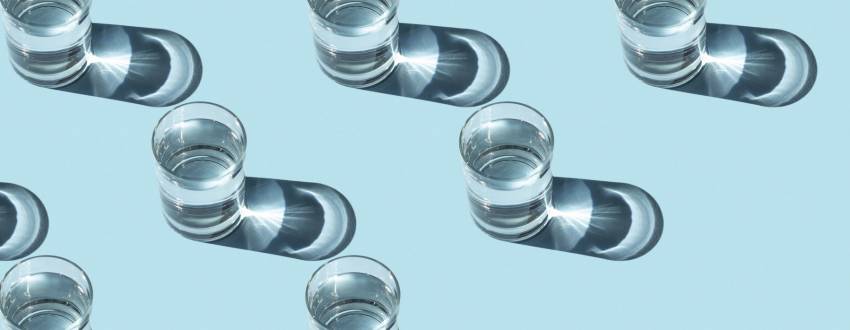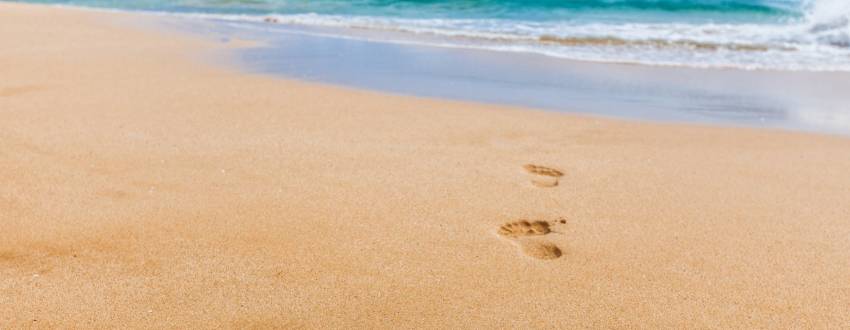Rosh Hashanah is the first time that many are going to shul since the COVID-19 pandemic. In many areas, it is still hot and/or humid outside, and it’s important to know how to stay hydrated, especially if your services are taking place outdoors.
How Much Water is Enough?

It’s a good idea to go into shul well hydrated, but how much water is enough? There are different opinions on this, but a general guideline that many registered dietitians recommend is to drink around 30 milliliters of water per kilogram of body weight per day. To find out what this means for you, simply divide your weight in pounds by 2.2 to get your weight in kilograms, and multiply the resulting value by 30 milliliters. This is how much water is recommended per day.
That being said, the classic advice to drink eight cups of water a day is reasonable, according to Mayo Clinic. However, most can stay adequately hydrated by simply honoring their thirst, whether or not that totals eight glasses a day, according to the Clinic.
Keep in mind that if you are davening outside in the heat, your fluid needs will be higher than the above recommendations. Exactly how much higher will vary by the individual and their surrounding environment.
Changing Water Needs
In addition to temperature and environment, there are many factors that can influence one’s fluid needs, including but not limited to exercise (think: walking far to shul), certain medications, illnesses, conditions and pregnancy. You may find that you need more (or less) water than those around you, and that’s okay if that’s the case!
Additionally, if you plan to drink coffee or caffeinated tea in the morning before going to shul, try to replace each caffeinated cup with one to two cups of water. Caffeine is a diuretic, which means that it stimulates urination, causing you to lose water. Replace that lost water by drinking more water!
Other Foods/Beverages for Hydration

You don’t have to meet your fluid needs by drinking plain water. Throw some herbs, fruit(s), and/or vegetables into your water bottle to make your water more exciting. I especially love the cucumber/lemon/mint combination. Yum!
Additionally, fruits, vegetables, soups and smoothies are all great for helping you stay hydrated. If water is too bland for your taste, herbal teas and unsweetened seltzers are great healthy alternatives.
What About Sports Drinks?
In most circumstances, sports drinks such as Gatorade are only recommended when one is vigorously exercising for over an hour. Since praying doesn’t typically involve much movement, sports drinks are not typically necessary when davening outside. Plain water (or another beverage of choice) should be just fine, especially if one has eaten a balanced breakfast before services and plans to eat a balanced lunch afterward. The appeal of sports drinks is that they contain electrolytes, however, so does food! If you’re eating regular, balanced meals and snacks, you should be able to get all of the electrolytes that you need from your food. In many circumstances, sports drinks contribute additional sugar and calories when they are not warranted.
The Takeaway

Everybody has different fluid needs, so find out how much water is best for you before making any changes to your hydration habits. Try to honor your thirst if possible. Go to minyan hydrated and nourished, rehydrate and refuel at lunch, and you should be good to go! Sports drinks are not necessary.
Please note that the information presented in this article is for informational purposes only and should not take the place of medical advice. Water needs vary by the individual. Check with your doctor to be sure you are drinking the right amount of water for your body.
-Dena Gershkovich is a dietetic intern with NewYork-Presbyterian Hospital in Manhattan. She holds a B.S. in Dietetics and a B.A. in Journalism from the University of Maryland. Check out Dena’s blog, The Artsy Palate, Instagram account (@theartsypalate), and Facebook page (The Artsy Palate) to see more of her work.






Reviews